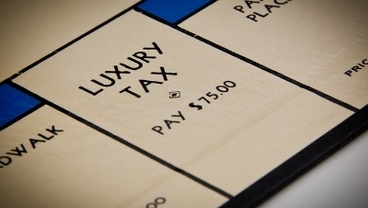Gov. Pat Quinn’s “millionaire tax” question, the most recent nonbinding vote added to the bloated November ballot, is not only a misguided effort to draw his base to the polls with blatant class warfare but incredibly poor public policy. Like all “soak the rich” tax schemes, the imposition of increased taxes on high-income earners will discourage new capital and entrepreneurs from entering the state.
High-income taxes drive taxpayers out of the state and their income, capital and tax revenues with them. Illinois need only look to Maryland to see the results of such a tax: That state found that by the year after its millionaire tax was passed, instead of new revenue, one-third of the state’s millionaires disappeared.
Only a few years ago, Illinois’ tax competitiveness compared well to its neighbors and other states. In 2011, however, the state increased the personal income tax rate to 5 percent from 3.75 percent in 2011 and raised the corporate tax rate by 30 percent. As a result, the Tax Foundation’s State Business Tax Climate Index ranks Illinois No. 31 in terms of competitive tax climates for businesses, far below its No. 17 rank in 2010.
Since these temporary tax hikes were implemented, state spending has continued to skyrocket, growing by more than 17 percent. Illinois still faces one of the nation’s worst fiscal deficits, the highest pension liability, and worst bond rating.
Mr. Quinn’s millionaire tax bucks the trend of almost every other state across the nation. Dozens of states have cut their income taxes in the last year to help spur economic development and create jobs. Many have already seen improvements. Indiana and Wisconsin have moved to make significant cuts in their taxes. Illinois has the 11th-highest total tax burden in the nation when calculated as a percentage of income; expanding the tax for high-income Illinoisans will make the state less competitive.
HERE TODAY, GONE TOMORROW
Millionaire taxes are an unreliable source of revenue. Scott Hodge of the Tax Foundation notes that millionaire status is both temporary and fluid. Many taxpayers achieve millionaire status only once in their lifetime. In addition, the number of millionaires fluctuates based on the business cycle. Before the recent recession, between 2002 and 2007, the number of millionaire tax returns more than doubled to a record 392,220; as a result of the recession, the number fell by 40 percent between 2007 and 2009.
The revenue-generating results of millionaire taxes have been mixed. Many states that increased taxes on the upper brackets, including Maryland, New York and New Jersey, have allowed their tax hikes to expire. Relying on a fluctuating tax with a small base like the millionaire tax can lead to larger budget deficits than with broader and flatter tax systems. The new millionaire tax would affect some 14,000 individuals and raise a projected $1 billion, which would be earmarked for public schools, according to the Illinois Policy Institute.
Assuming the millionaire tax will raise any meaningful revenue is simply wishful thinking. Even under the current tax system, higher-income earners are already leaving: According to the IPI, the average income of a taxpayer who leaves Illinois is $13,100 above Illinois’ median household income.
Instead of increasing taxes on higher earners, a source of revenue that fluctuates greatly with the changing economy, Illinois legislators should focus on making the state a more attractive place for businesses and workers by restraining spending, lowering taxes and reducing unnecessary regulations. Illinois’ tax rates are steadily climbing higher than most states’; increasing them any further risks greater harm to the state’s economic competitiveness.
People and businesses are leaving the state in droves; Mr. Quinn’s tax policy is the exact opposite of what the state should be doing.





